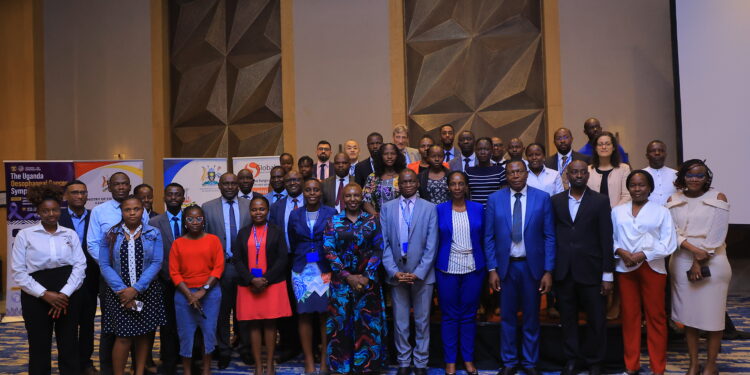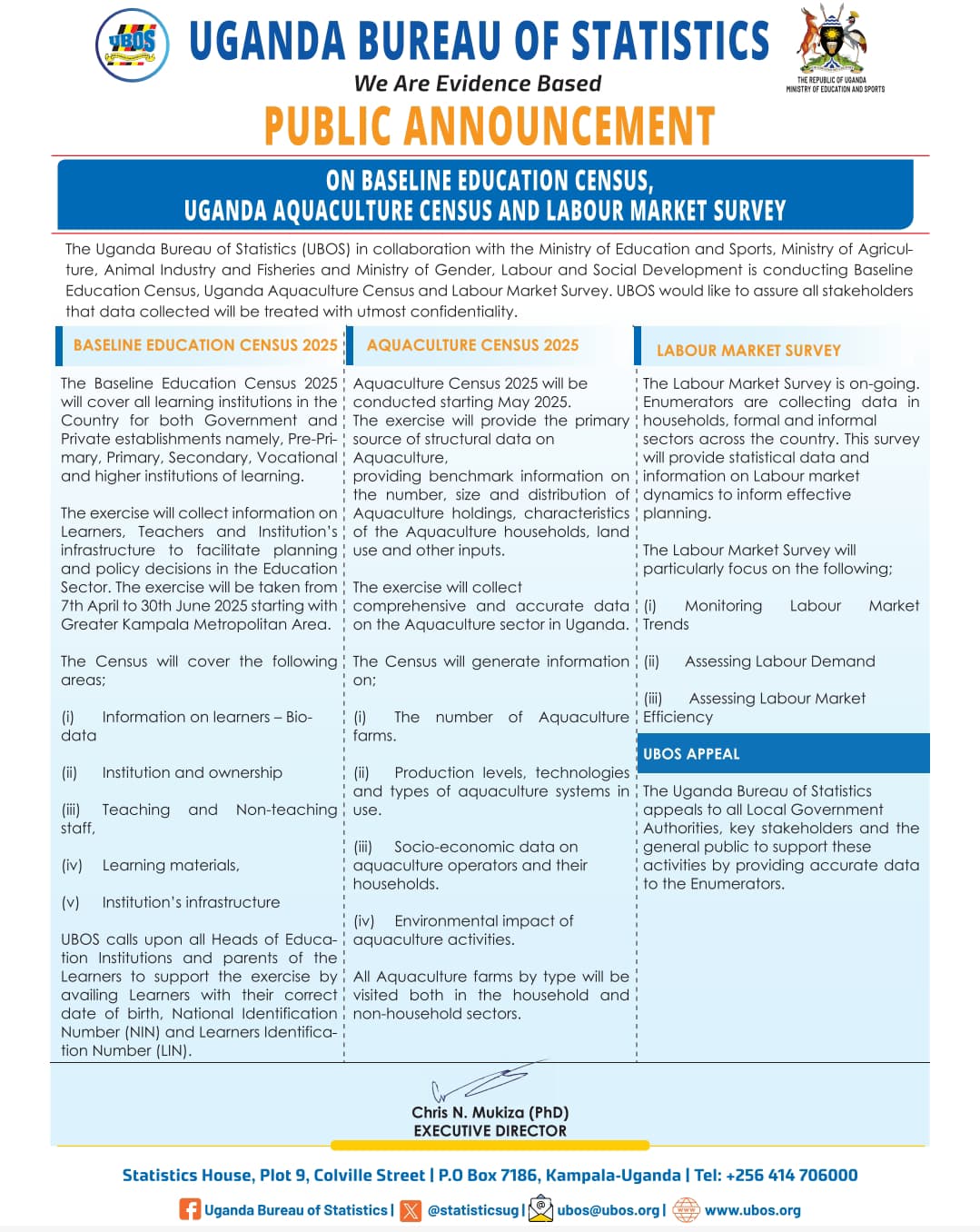In a powerful display of Uganda’s growing dedication to collaborative health diplomacy, the Uganda Embassy in Washington, D.C., in partnership with the Uganda Cancer Institute (UCI) and key stakeholders—AFRECC, Olympus, and Kyabiirwa Surgical Centre—hosted a high-level Oesophageal Cancer Symposium at Four Points by Sheraton, Kampala.
Held under the theme “Leveraging Science, Innovation and Technology to Address the Burden of Oesophageal Cancer in Sub-Saharan Africa,” the symposium marked the conclusion of a four-day health-focused initiative that began with specialised surgical training at Kyabiirwa Surgical Centre in Jinja. More than 50 patients received treatment during the training, providing a tangible demonstration of how applied science can directly improve lives.
Far more than a traditional academic conference, the symposium brought together a diverse range of participants from the healthcare sector, diplomatic corps, academia, media, and private industry—united by a common purpose. The agenda combined policy discussion with personal stories—testimonies from survivors, caregivers, and practitioners operating in resource-limited settings—highlighting the human dimension of healthcare challenges. This unique blend of policy, practice, and lived experience gave the event both emotional depth and diplomatic significance.
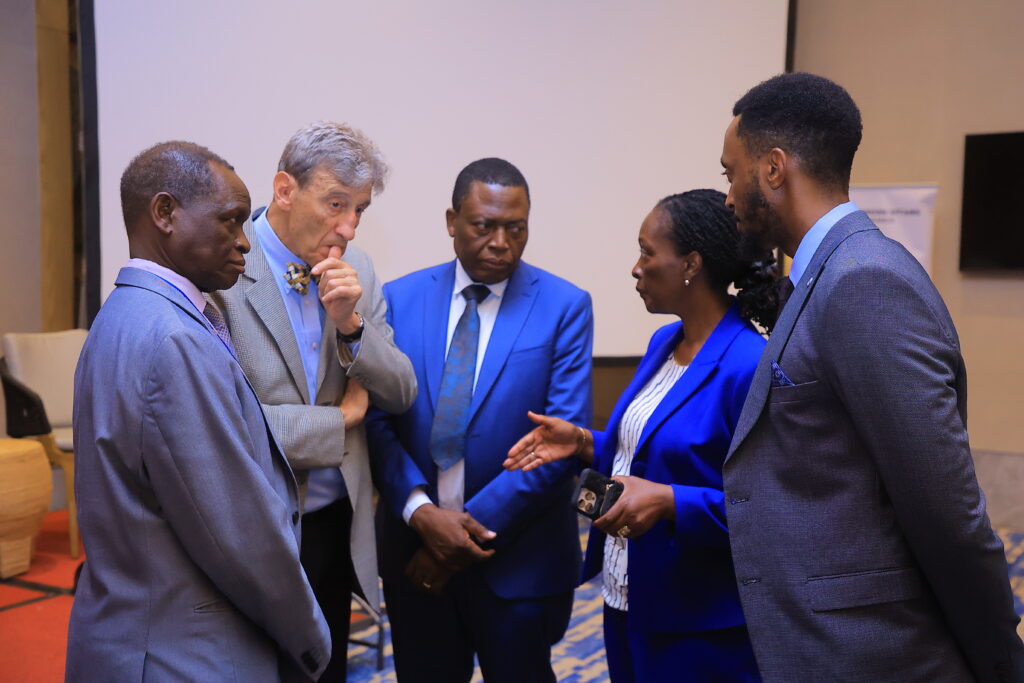
The symposium also served as a platform for examining the broader socio-economic and cultural factors influencing the rise of non-communicable diseases. Speakers explored the impact of public perception, behavioural shifts, and the role of industries such as tobacco and alcohol in shaping cancer prevalence. The discussions emphasised the urgent need for a multi-sectoral approach—one that integrates regulation, public education, and technological innovation to build resilient health systems.
Uganda’s Ambassador to the United States, H.E. Robie Kakonge, addressed the gathering, reinforcing the Mission’s commitment to promoting Science and Technology transfer, a core tenet of Uganda’s four ATMS framework. “Cancer is not just a medical challenge—it’s a deeply human one,” she remarked. “Each diagnosis tells a story of hope, resilience, and the quiet strength of families and communities.”
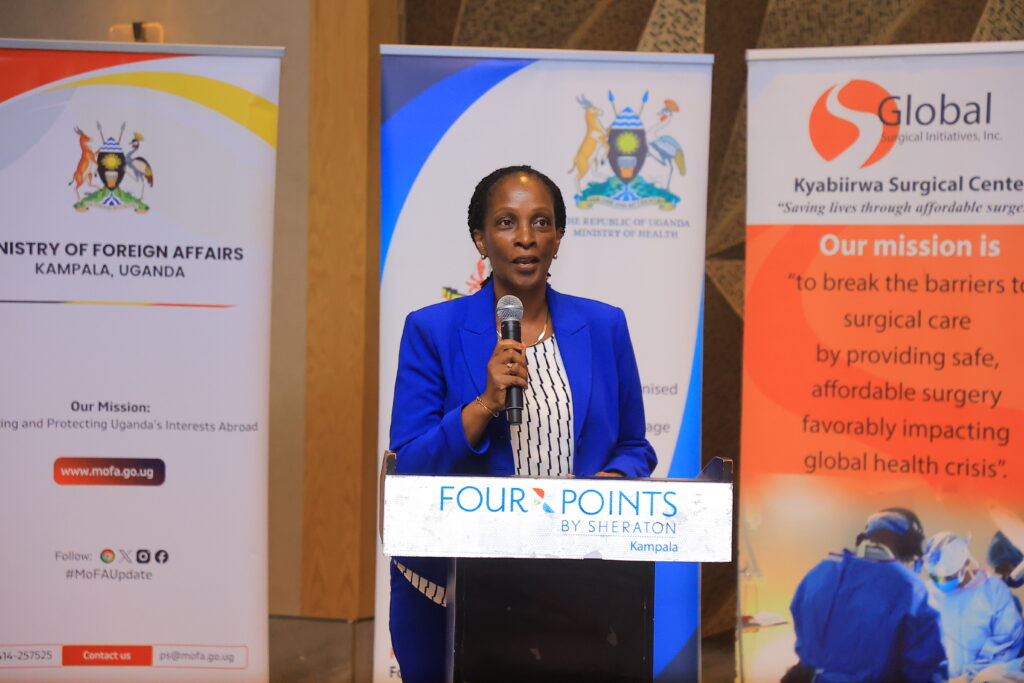
She stressed the vital role of technology in overcoming geographic and resource limitations and emphasised that embassies today must act as both diplomatic posts and development facilitators. “With limited resources and high expectations, we walk a fine line. But strategic partnerships and shared responsibility remain our greatest assets,” she noted.
Ambassador Kakonge also acknowledged the contributions of international partners such as Japan and the United States, not merely as donors, but as co-creators of a shared future. Her call to “think beyond borders and budgets” framed cancer as a global development issue, resonating strongly with the international stakeholders present.
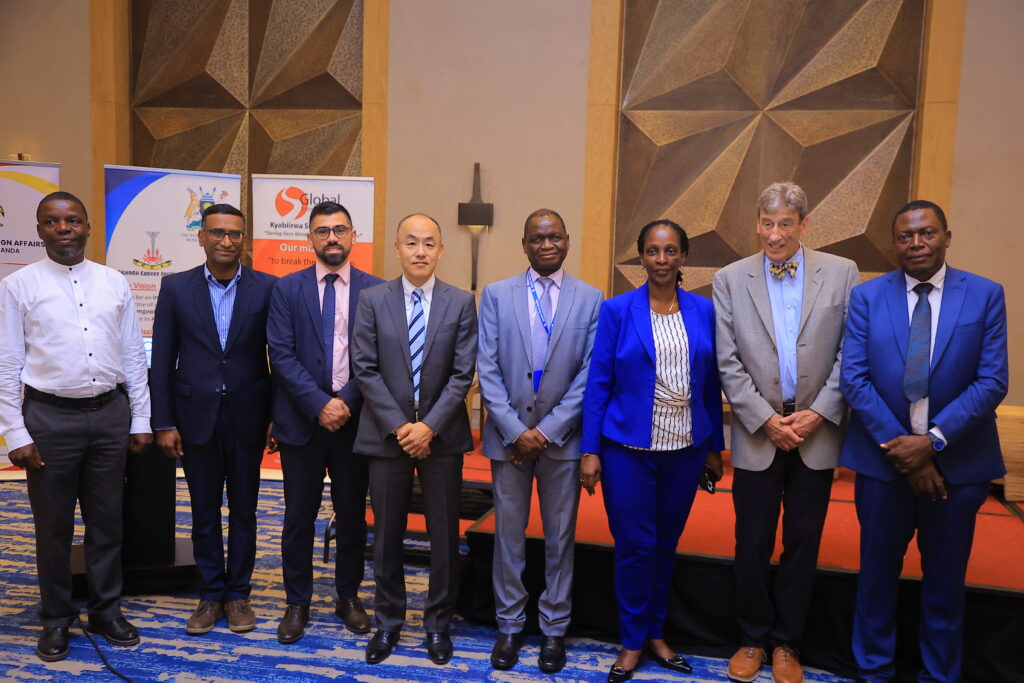
Representing Japan, H.E. Takuya Sasayama, Ambassador to Uganda, reflected on the evolving partnership between the two countries, describing it as “a journey of mutual respect and long-term investment in people.” He highlighted collaborative growth areas, including healthcare, cultural exchange, and coffee exports.
Japan’s support for Uganda, through ambulance donations and medical equipment, was framed not as charity but as an expression of friendship. “Our collaboration is not a project. It is a relationship,” he emphasised, inviting stakeholders to co-create solutions that reflect a shared vision for health, innovation, and sustainability.
In a keynote speech delivered on behalf of the Hon. Minister of Health, Dr. Charles Olaro, Director General of Health Services, reaffirmed Uganda’s commitment to early detection, health education, and equitable healthcare access. He underscored the critical role of HPV vaccination for girls under 14 and the pressing need for early cancer diagnosis. “When we delay, we pay,” he said, referencing both the human and economic costs of late-stage detection. Dr. Olaro also addressed the increasing mental health burden, advocating for integrated, community-based models of cancer and psychosocial care.
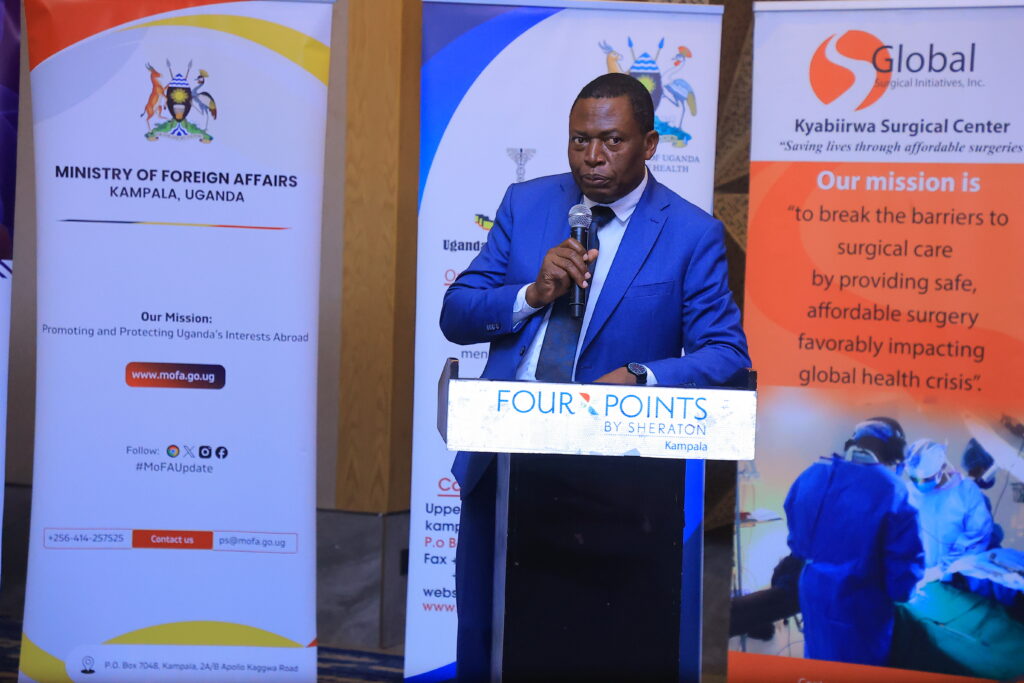
Dr. Jackson Orem, Executive Director of UCI, described the symposium as “a convergence of science, innovation, and diplomacy.” He emphasised that Uganda’s cancer challenge cannot be addressed in isolation. “We must draw on global partnerships not just for funding, but for the co-creation of knowledge. Innovation must be localised, and science must be democratised,” he said. His call for inclusive, global cooperation was met with enthusiastic support from the international delegations in attendance.
As the symposium drew to a close, one message rang clear: Uganda is not just participating in global health conversations—it is actively shaping them. With a grounded understanding of regional realities and an eye on the future, Uganda is emerging as a key voice in the global discourse on cancer care, health system resilience, and collective well-being. In a world still marked by stark health inequities, Uganda’s message is both timely and urgent: “Let us heal together.”








